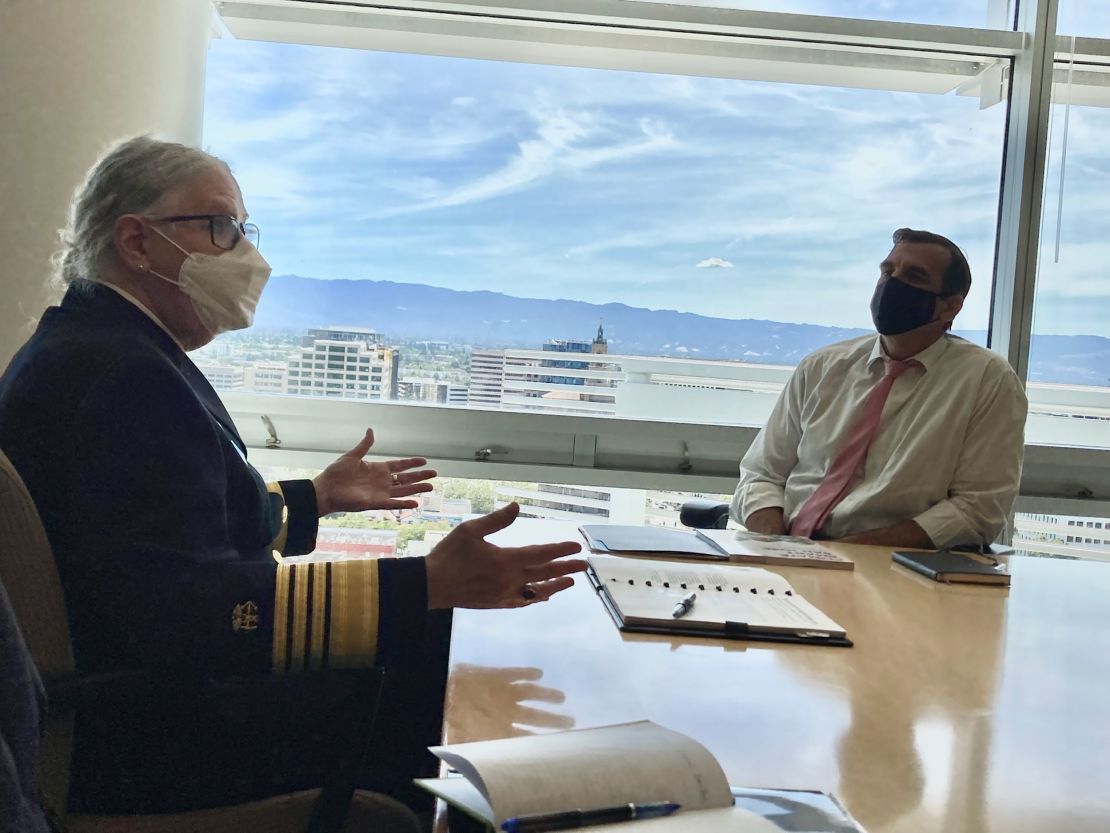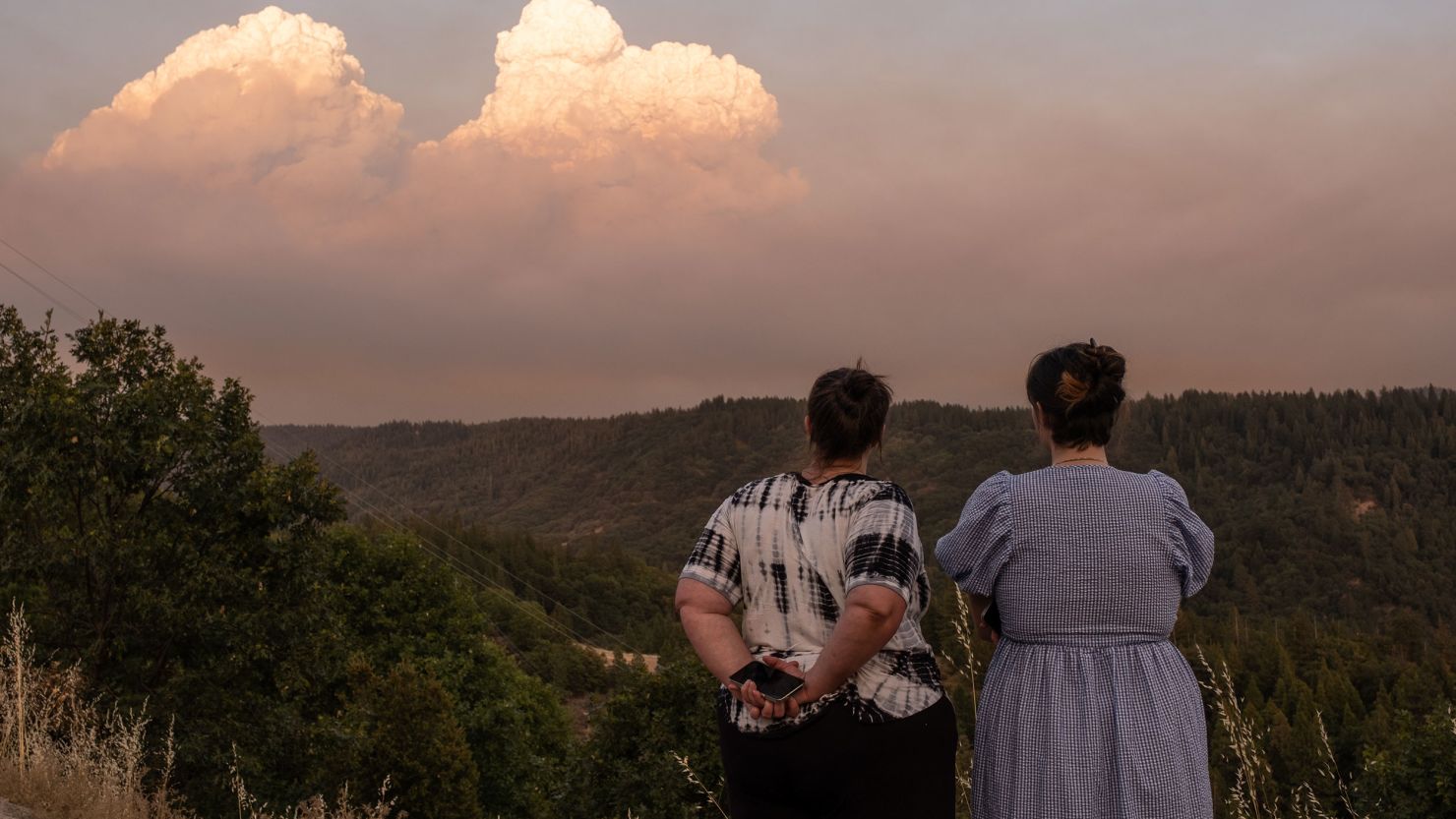President Joe Biden’s first sweeping executive orders on climate included launching an entirely new office within the Department of Health and Human Services with an important mandate: dealing with the public health impacts of climate change.
But nearly a year after the Office of Climate Change and Health Equity was established, it still has not been funded by Congress. With no full-time staff, the office is instead getting temporary employees assigned from other parts of HHS to work on its initiatives, which include tackling extreme heat, air pollution from wildfire smoke, flooding, and working with disadvantaged communities that suffer disproportionately from climate’s impacts.
Latest on the climate crisis
Officials at the office told CNN they can’t do the job properly without funding and more resources, especially as human-caused climate change worsens extreme weather.
“Public health decisions have to be based on the realities of climate change, and the [office] needs resources to make that happen at the federal level,” said Adm. Rachel Levine, assistant secretary for health at HHS, in a statement to CNN.
Levine pointed the recent spate of early season heat waves that have affected tens of millions in the US. This week alone, as many as 80 million people were under heat alerts as the heat index climbed to as high as 115 in the Midwest and South.
Heat is one of the most pernicious climate change-related killers and as global temperatures continue to rise, it’s only expected to get worse. Scientists from Duke University and the University of Washington recently found that the US could see as many as 100,000 more heat-related deaths per year as temperatures soar.
“We’re seeing right now what extreme temperatures can do to human health and environmental quality,” Levine told CNN. “We can’t respond effectively at the Department of Health and Human Services without funding, staffing and political support, and I’m hoping Congress recognizes the value and importance of what we’re trying to build here.”
The office has made do with the few resources it has, according to Aaron Bernstein, the interim director C-CHANGE at the Harvard T.H. Chan School of Public Health. But he said Congress needs to recognize the seriousness of the threat.
“It would be as if 9/11 happened and we didn’t create the Department of Homeland Security, is essentially what we’re doing,” Bernstein told CNN.
Staffing challenges, and a broad mandate
At its inception in August 2021, administration officials vowed the Office of Climate Change and Health Equity would “fulfill President Biden’s vision” to combat the climate crisis and the devastating health impacts brought by extreme heat and wildfire smoke.
“We’ve always known that health is at the center of climate change, and now we’re going to double-down on a necessity: fighting climate change in order to help protect public health in our communities,” HHS Secretary Xavier Beccera said in August.

Biden’s budget request to Congress asked for $3 million to fund eight full-time positions at the office. It has yet to receive any appropriation. A House Appropriations Committee spokesperson noted the office would be funded under the fiscal year 2023 budget that recently passed out of committee, but that budget also needs to be agreed to in the Senate, where Republicans aren’t not sympathetic to Biden’s climate goals.
CNN spoke with two HHS officials who requested anonymity because they weren’t authorized to speak publicly on the topic. Both officials said the team is making progress on a shoestring budget, but need Congressional funding to fulfill the mission it was tasked with.
“We’ve kind of scraped and borrowed to piece together a team,” one official said.
With zero full-time staff, the climate office instead has been loaned detailees from other agencies like the Centers for Disease Control and Prevention and National Institutes of Health. But their time there could be temporary. Detailees typically stay at a new office for 120 days, after which they need approval to continue. Political appointees in the department’s climate office will only stay as long as Biden remains in office.
Another official added the office is hoping to make some full-time staff hires in the coming months. But without dedicated funding, a stream of temporary detailees could slow down projects and make it difficult for states and local communities to keep up with who is in charge.
“There’s a long history of going out and talking and not being able to provide sustained support, and I don’t want this office to be repeating that at all,” that official said.
Coordinating crucial work
Those who work in OCCHE readily admit it was never intended to be a massive office with billions in funding. Instead, they see it as a nimble agency that can coordinate work in other departments that deal with climate change and its disasters but don’t often communicate – like the CDC and FEMA.
“Federal bureaucracies, their silos were built up well before climate change was considered a major issue,” Bernstein told CNN, adding that up until this year, FEMA didn’t consider extreme heat as a disaster. “The reality is climate is affecting health right now, and for lots and lots of Americans.”

Even with few resources, HHS officials say that they’ve been able to make progress. In addition to publishing informational climate health outlooks on extreme heat and doing outreach to impacted communities, the office is also actively working with major health care organizations and hospitals to try to decarbonize the health care sector. It recently announced major pharmaceutical companies and hospitals, including Pfizer, AstraZeneca and Kaiser Permanente, agreed to cut emissions 50% by 2030 and get to net-zero emissions by 2050.
“What we’ve stitched together in less than a year is a commitment from the US towards major greenhouse gas reductions in the health sector,” an HHS official CNN. “I can tell you with 100% surety, that would not have happened without us working here.”
Other big focuses have been coordinating funding for cooling assistance for areas struggling with heat or getting air purifiers and better air filtration to communities dealing with wildfire smoke. Another official told CNN the office is looking at existing government grant programs like the Low Income Home Energy Assistance Program or Medicare Flex cards being used to provide air filters for people in communities where wildfires are burning.
“That’s something you could do without a ton of money in your pocket, but with people that know where the right kind of levers are,” that official said.
With the second major heatwave of the summer season baking the Midwest and Southeast this week and fires continuing to rage in the Southwest and Alaska, the health impacts of climate are clear and urgent.
“At the end of the day, if governments do not carve out these types of offices or people that are working intentionally on climate and health, we’re going to fail,” an HHS official told CNN.



